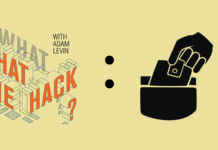 Ask a parent how far they’d go to protect their child, and their answer would probably be along the lines of, “I’d do anything.” That’s a powerful statement — and it’s also a dangerous one. Sometimes, parents’ efforts to keep their kids safe can actually put their children at risk.
Ask a parent how far they’d go to protect their child, and their answer would probably be along the lines of, “I’d do anything.” That’s a powerful statement — and it’s also a dangerous one. Sometimes, parents’ efforts to keep their kids safe can actually put their children at risk.
The Identity Theft Resource Center and the National Center for Missing and Exploited Children recently issued a warning on this topic, telling parents to watch out for scams in the form of child ID kits. These kits contain all sorts of information about a child, and the idea is to have them readily accessible to assist law enforcement in finding a missing child.
We’re talking about a lot of personal information: a detailed description of the child, a color photo, fingerprints, DNA samples, dental records and medical reports. These things can be invaluable in an investigation regarding a missing child, but they’re also a treasure trove for identity thieves. Some child ID kits actually put a child at risk, and some are flat-out scams, according to the centers’ warning.
Whenever you’re prompted to share sensitive information with a third party, it’s important to research who you’re working with and maintain as much control over your data as possible. When it comes to child ID kits, here are some questions to ask before paying a company to put one together for you, according to the Identity Theft Resource Center and the National Center for Missing and Exploited Children.
1. What Happens to the Child ID Kit?
The centers recommend parents hold onto the kits and keep them in a safe location, because the more places this information is, the more likely it is to fall into the wrong hands. A company that offers to keep copies of the records should send up a red flag, the centers warn.
2. What Information Are They Asking For?
Some information about your child won’t help law enforcement find them if they go missing, like Social Security numbers and birth certificates. The centers advise parents to avoid companies asking for such information as part of a child ID kit.
3. Do Their Claims Hold Up?
Parents should do a little digging if they’re looking at a company that claims to be endorsed by law enforcement or says all their profits go to charity, the warning states. The centers suggest parents contact the law enforcement and charities in question to check out the claims themselves. Looking at reviews through organizations like the Better Business Bureau and Charity Navigator could also be helpful.
4. Do You Feel Pressured to Buy a Product?
Keep in mind you can put together a child ID kit on your own — if you pay someone to do it, what you’re really paying for is convenience. It’s up to you how you want to collect and store the information about your kids, so beware any company trying to scare you into buying their service.
The Identity Theft Resource Center is encouraging parents to be especially careful with their kids’ biometric information (fingerprints, DNA, etc.) because it’s an increasingly popular security tool. That makes it a target for identity thieves.
Besides being careful with child ID kits, it’s also a good idea to watch out for signs your child’s identity has been stolen, like if they’re getting loan or credit card offers in the mail. Before your child has credit of their own, they shouldn’t have a credit report, but each of the three major credit reporting agencies has tools for protecting your child’s credit and resolving child identity theft, if you’re concerned their personal information has been abused. As for your own identity protection, regularly checking your free annual credit reports and credit scores will help you spot any suspicious activity. You can get two free credit scores every month on Credit.com to help you stay on top of it.
This article originally appeared on Credit.com and was written by Christine DiGangi.










